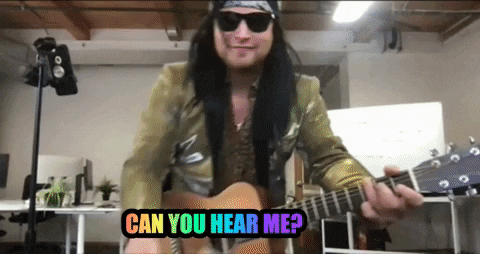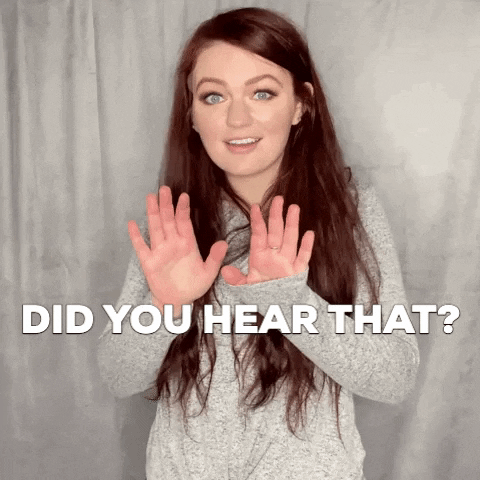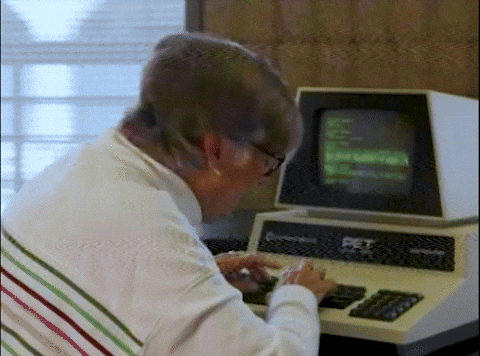Why Is GM Bowing Out While Tesla Goes Full Speed Ahead?
The Weekly from The Liquid Lunch Project, Issue No 145 | December 13, 2024
End 2024 on Your Terms: Before diving into 2025, take a minute to break down what worked, what didn’t, and what’s next. Our FREE Year-in-Review Worksheet helps business owners reflect on their wins, learn from tough lessons, and set actionable goals. Grab it now and start the new year with your head in the game.
ON TAP THIS WEEK
👨🏼💻 Remote Work Got Your Culture on Life Support? We’ve got thoughts.
🚖 Cruise Snooze: Why GM left the Robotaxi party early.
🏗️ Elon Builds a New Frontier (and it’s not on Mars… yet)
🧮 How Does a Chip the Size of a Mint Solve 10 Septillion Years of Math?
🚫 Move Over, Humans: Tesla’s AI is flexing hard.
🆘 Is This Mega-Merger a Play for Innovation? (Or just a Hail Mary?)
✂️ Trim the Fat, Not the Quality: Cost-cutting done right.
🌐 And from Around the Web: Wordplay, Spy Games, and the FBI’s Favorite Apps.
THE CLASSROOM
Maintaining Company Culture in a Remote Work Environment
by Luigi Rosabianca
Remember the good ol’ days when company culture just… happened? Office chats, snack runs, happy hours—those little moments kept the vibe alive. But now, with everyone scattered across home offices and coffee shops, it’s easy for culture to slip through the cracks.
Here’s the deal: culture isn’t just warm fuzzies—it’s the glue holding your team together. And remote work means you need to be extra intentional about keeping it alive.
From creating meaningful rituals to ditching forced fun for fresh bonding ideas, we’ve got you covered. Want to learn how to keep your team thriving no matter where they log in from? 👉🏽 Click here to read more.
HEARD ON THE STREET
🚗 And Then There Were Two
GM is the latest legacy car company to stop making self-driving taxis. The automaker cited an increasingly competitive (wimps!!) market for departing. Instead, It will combine its robotaxi unit Cruise with GM’s technical teams to focus on driver-assisted technology. Waymo and Tesla currently dominate the Robotaxi market. Waymo is the most successful player with 150K driverless rides/week. Tesla recently hosted a Robotaxi Day on October 10th and hopes to launch them by late ‘25.
Developing driverless vehicles is costly. (No shit.) Waymo, majority-owned by Google-parent Alphabet, recently raised $5.6B to fund expansion. Tesla spends $1B a QUARTER 🤯 on research and development, some of which goes toward artificial intelligence in driverless cars. GM Chief Executive Mary Barra asserts the company remains committed to enhancing driver-assistance systems. Cruise has been in turmoil since October 2023, when California suspended its license to operate driverless cabs after an accident in which a pedestrian was hurt by one of its taxis. Investors responded well to GM’s robotaxi decision as the shares rose after the announcement and are up almost 50% since the start of the year.
The market speaks loudly, indicating a preference for management to return capital to shareholders instead of making large bets to transform the company. In the longer term, the move could be seen as shortsighted if GM misses out on booming demand for robotaxis. Fortune favors the bold.
🏭 No Stop Til Bastrop
The company town is making a comeback. Both workers and investors alike are flocking to Texas to see the town that Elon is building, and where it sits in the grand and controversial history of American company towns. Musk announced he was moving X’s headquarters from San Francisco to Austin. Its actual location is 25 miles away in Bastrop County. It is near Snailbrook, where Boeing and SpaceX are based, and it’s closer to the airport than it is to Austin. It’s also near Tesla’s Texas Gigafactory.
Company towns arose in the 19th century as a symptom of and solution to issues related to the Industrial Revolution, as factories, mines, and mills in remote locations needed infrastructure to support a workforce. Lowell, Massachusetts, is considered one of the first planned company towns. It included a textile mill and boarding houses for the women who operated it along mostly undeveloped land on the Merrimack River, where overseers ensured the women went to church and behaved morally. Several American communities still around to this day - Hershey, Pennsylvania, Gary, Indiana — were founded as company towns, though few retain their original form.
We can totally envision a Tesla University, amusement park and General Store.
⏱️ Tick Tock for TikTok
A federal appeals court upheld a law banning TikTok nationwide unless parent company ByteDance sells it. The court claimed China-based ByteDance represents a national security threat and gives TikTok until January 19th to be sold off or face a nationwide ban.
This deadline may be extended by 90 days if there is ‘significant progress’ toward a sale. One option could be for the enactment date to be forestalled, and Donnie Trump brokers a deal for the app to be acquired by an American company or group of investors. Banning TikTok is not as simple as flipping an off switch. The law targets App stores controlled by Apple and Google, forcing the tech giants to remove TikTok and making it illegal for web-hosting companies to support TikTok. A drawn-out appeals process could come next. Either party can ask for the D.C. appeals court to re-examine the case. From there, the Supreme Court can also be asked to review it.
So, will TikTok dance its way into American hands, or is this the final curtain call for your FYP? Stay tuned—this drama might outlast your phone's battery life.
💡 Faster Than a Speeding Qubit
Google just debuted Willow, a new quantum chip the company states needs less than five minutes to complete a test problem that would take the world’s fastest supercomputer 10 septillion years to figure out. The more processing bits (called “qubits”) a quantum computer has, the more powerful it is, but the more errors occur. Until now. For the first time in quantum computing, adding more qubits to Willow reduced the error rate, which is a critical step toward scaling this type of computing.
The new chip, called Willow, made in the California beach town of Santa Barbara, is about the dimensions of an 'After Eight' mint and could supercharge the creation of new drugs by significantly speeding up the experimental phase of development.
Whereas regular computers translate our little taps via binary bits represented by 0s or 1s, quantum computers’ qubits exist in multiple states simultaneously - like Schrödinger’s cat. 🙀 This exponentially speeds up problem-solving, which can expedite drug trials, nuclear reactor construction, AI testing, and a host of other innovations. Quantum computers with enough power could potentially crack even the strongest encryptions, which is why Apple announced in February that it was attempting to “quantum-proof” iMessage encryption.
Willow is still experimental. But with governments around the world dumping billions of dollars into research, quantum computing could start to meaningfully change our lives in five years. Meep Meep.
🚘 Driver Download
Tesla just released the latest version of its autonomous Full Self-Driving (FSD) software, v13.2, to a limited number of external customers. Building on v12's transition to end-to-end AI earlier this year, v13.2 introduced several enhancements, including FSD parking at the start and the end of journeys and driving in reverse. Its Cortex cluster in Austin has increased Tesla's training compute power by 5X, optimizing the performance of FSD v13.2 in vehicles with Tesla's AI4 computer chip and higher-resolution video inputs. According to user videos showcasing zero-intervention drives, early feedback is that v13.2 has resulted in much smoother rides. FSD v13.2 is a major step toward Tesla's goal to launch a robotaxi service in California and Texas next year.
Next year, Tesla predicts that the new model will extend miles between critical interventions, achieving a rate better than the national average of ~670K miles between human accidents - a ~700X improvement over the widely released FSD v12.5. While surpassing this milestone is not a prerequisite for Tesla's robotaxi launch, it should save lives, enhance conversations with regulators, and lower the costs associated with remote human operators.
It is, at times, awe-inspiring to see the car undertaking maneuvers, usually the domain of us adroit humans. For example, it did not set off immediately as it checked its surroundings and waited for a gap in traffic. Being in the leftmost charging stall right next to a curb, the car could have easily scratched its wheels when it made its left turn, but it detected that and pulled to the right before making the left turn. There are instances when the car changed its route through the parking lot on the fly. While it initially suggested that it would go right after coming out of the parking spot, it first made a left. Then it turned right, giving a glimpse at its neural network-powered decision-making in action on the fly. It also slowed down enough for speed bumps, which wasn't always the case with V12 or older iterations. It is by far the most significant improvement of any version yet issued. It still has some small, weird bugs (refer to this video) and sometimes executes some aggressive maneuvers. So does grandma! We will continue tracking these developments as Tesla moves closer to robotaxi commercialization.
💼 Less Suits, More Mad Men
Omnicom is acquiring Interpublic Group to create an advertising company worth $30B+. The New York City ad agencies have created some of the world’s most iconic campaigns, like ‘Got Milk’ and Apple’s ‘Think Different.’
The company will keep the Omnicom name and trade under the ‘OMC’ ticker symbol on the NY Stock Exchange. The size of and reach of the new marketing giant will have multiple advantages, including the use of new technologies like artificial intelligence. Some consolidation is positive for the industry following a couple of years of divergent growth among agencies and is ahead of an investment cycle for Gen-AI.
Even classic, traditional industries can benefit from the economies of scale in mergers of equals. This scenario is a simple last-gasp effort for survival. AI and tech tools are making classic advertising businesses obsolete. This merger probably buys this combined firm and a few more years of running on fumes … unless the Marlboro Man and the cigarette business can be revived!
THE MONEY MINUTE WITH MRM
8 Cost-Cutting Strategies to Reduce Overhead
with Matthew R. Meehan
Overhead costs eating into your profits? It’s time to slash those expenses without compromising quality or productivity. This article breaks down 8 proven strategies—from energy-saving upgrades to embracing remote work and negotiating better supplier deals—to help you regain control of your budget. Whether you’re tightening belts for growth or just tired of unnecessary expenses, check out this article to learn how to streamline your operations and boost your bottom line.
AROUND THE WEB
No Español, No Problem: A New Zealand Scrabble wizard who doesn’t speak Spanish 🤔 just won the Spanish Scrabble world title by memorizing the word list like a human supercomputer. Apparently, languages are optional when you're playing 4D chess with tiles.
Keep Calm, Encrypt Everything: Chinese hackers are stealing call records, but the FBI and CISA are here to remind you that encrypted messaging apps like Signal and WhatsApp can keep your chats private (unless you’re a screenshot-happy friend). Bonus tip: disappearing messages are your new BFF. 🥷🏼
Crack Codes, Not Christmas Crackers: Britain’s spy agency, GCHQ, is serving up a festive brain 🧠 workout with its annual Christmas Challenge—a puzzle-packed card aimed at turning teens into the next generation of code-crackers. It’s part holiday cheer, part STEM recruitment, and 100% spy-level tricky.








